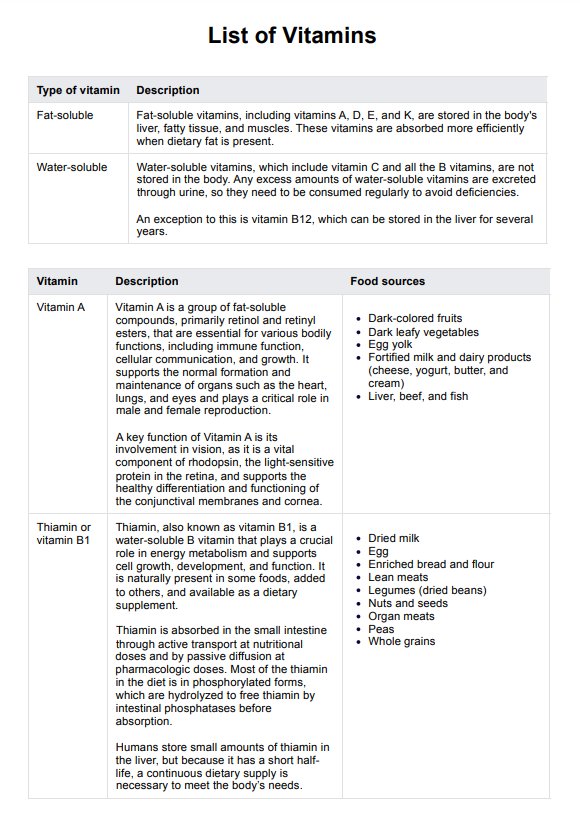Tracking vitamin intake is crucial to ensure you're receiving adequate nutrients necessary for optimal body function and disease prevention. It helps identify any deficiencies or excesses that could lead to health issues.

List of Vitamins
Check out Carepatron's List of Vitamins free downloadable PDF and stay informed about the essential nutrients for optimal health.
Use Template
List of Vitamins Template
Commonly asked questions
Fruits, vegetables, whole grains, dairy products, and meats are common sources of vitamins. For example, citrus fruits are rich in vitamin C, while dairy products often provide a good amount of vitamin D.
While no single vitamin can be deemed the most powerful, vitamin D is often highlighted for its crucial roles in bone health, immune function, and mood regulation. It is unique because the body can produce it when exposed to sunlight.
EHR and practice management software
Get started for free
*No credit card required
Free
$0/usd
Unlimited clients
Telehealth
1GB of storage
Client portal text
Automated billing and online payments











